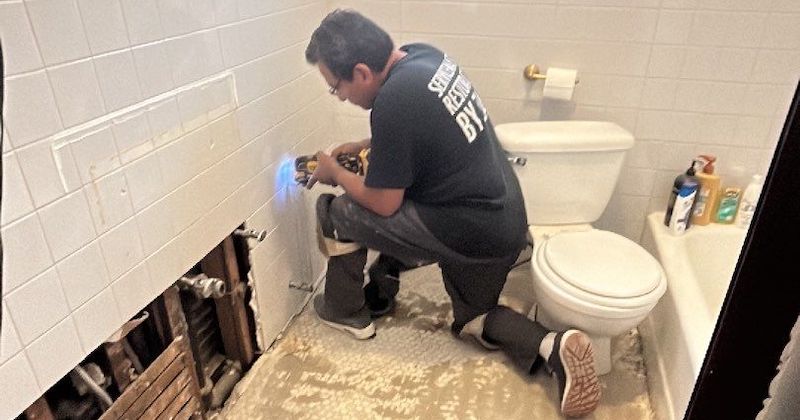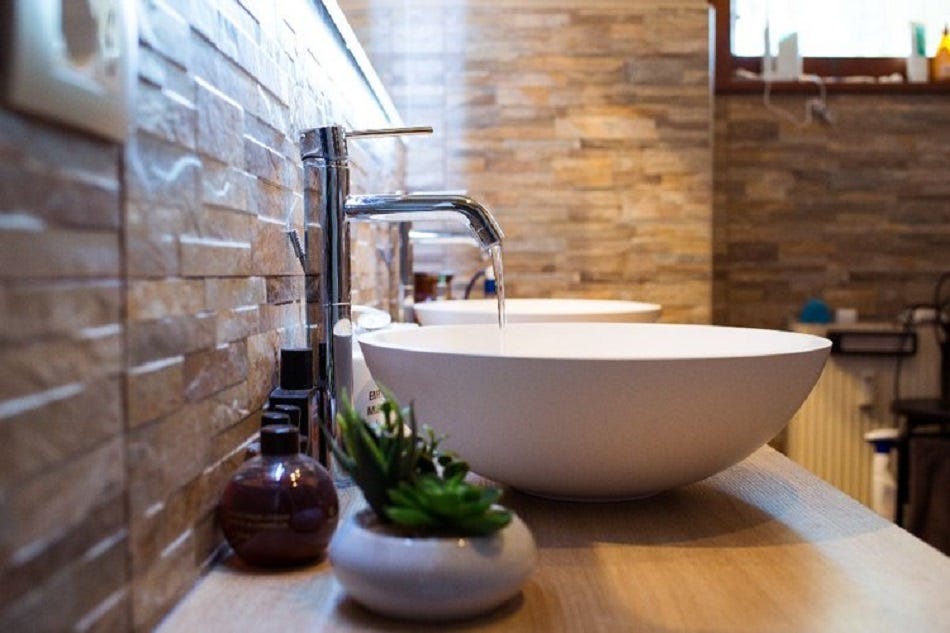Beginner's Guide to Proper Bathroom Plumbing Care
Beginner's Guide to Proper Bathroom Plumbing Care
Blog Article
We've stumbled upon this article about Essential DIY Bathroom Plumbing Tips Every Homeowner directly below on the net and felt it made good sense to discuss it with you on my blog.

For brand-new house owners, understanding and maintaining shower room plumbing can save both money and time by avoiding pricey concerns down the line. Right here are some vital washroom pipes tips to aid you keep whatever running efficiently.
Acquaint Yourself with the Key Shut-Off Shutoff
Recognizing where the main water shut-off shutoff is located in your house is crucial. This permits you to rapidly shut off the water system in case of significant leaks or during plumbing emergencies, stopping comprehensive water damage.
On A Regular Basis Examine for Leaks
Small leaks can lead to big issues. On a regular basis examine under sinks, around toilets, and near pipes fixtures for any type of indicators of leakages. Seek wetness, tiny drips, or rust. Catching and fixing leakages early can avoid much more severe damage and conserve water.
Do Not Neglect Slow Drains
If your sink or bathtub is draining pipes gradually, it's usually an indicator of a blockage forming. Addressing this very early can avoid a total obstruction. Use a bettor or a plumbing professional's serpent to clean out debris. Stay clear of utilizing chemical drainpipe cleaners as they can harm your pipelines with time.
Know What Not to Flush
Bathrooms are not waste disposal unit. Stay clear of purging anything aside from bathroom tissue and human waste. Products like wipes, womanly health products, and cotton swabs should be taken care of in the trash to stop blockages and sewage system backups.
Mount Strainers in Drains
Location strainers in your sink and bath tub drains to catch hair and other particles before they enter your pipes system. Cleansing the filters consistently will aid prevent build-up and maintain water flowing openly.
Keep Your Water Heater
Guarantee your hot water heater is set to a proper temperature level (generally about 120 degrees Fahrenheit) to stop scalding and reduce power use. Flush the tank yearly to get rid of debris accumulation, which can lower the efficiency and life-span of your heater.
Upgrade Your Components
If your home has older fixtures, take into consideration upgrading to a lot more effective models. Modern bathrooms, showerheads, and taps are made to use much less water while providing great stress, which can considerably reduce your water costs and environmental footprint.
Be Cautious with DIY Plumbing Repair Works
While it's alluring to deal with all home fixings by yourself, be cautious with plumbing. Some problems may call for specialist experience, especially if they include primary water lines or sewage system repairs. Hiring an expert can often be much more economical than do it yourself, specifically if it protects against more damages.
Plan For Winter
Safeguard your pipes from freezing during cold weather by insulating pipes in unheated locations like basements, attics, and garages. During extreme cold, allow cold water drip from taps served by subjected pipes to help protect against freezing.
Arrange Routine Upkeep
Take into consideration organizing yearly examinations with a licensed plumbing. They can identify concerns that you might miss, such as surprise leaks or wear and tear on pipelines and components. Routine upkeep helps prolong the life of your pipes system and can stop emergency situations.
Conclusion
Recognizing and keeping your home's shower room pipes can prevent lots of usual concerns. By following these essential suggestions, you can ensure your restroom stays practical and effective, conserving you money and time in the long run.
Essential Plumbing Tips for Homeowners: What You Should Know
Plumbing issues can be a nightmare if left unattended, often resulting in costly repairs and significant damage to your home. That's why it's crucial for homeowners to arm themselves with the essential home plumbing maintenance tips and knowledge to prevent such mishaps and maintain the efficiency of their plumbing system.
?Get to know the various aspects of residential plumbing maintenance, from identifying warning signs of potential issues to simple tasks you can perform to keep your plumbing in top condition. By empowering you with the necessary plumbing tips for homeowners in this guide, we will help you tackle everyday plumbing challenges with confidence to keep your home's plumbing system flowing smoothly.
Mastering Home Plumbing Tips
Understanding the basic home plumbing tips allows homeowners to detect issues early on, take prompt action, and prevent them from becoming major headaches. With this proactive approach, homeowners can save both time and money.
Moreover, having a grasp of plumbing basics enables homeowners to communicate effectively with plumbers or other professionals when seeking assistance. Being able to accurately describe the problem and understand the proposed solutions not only streamlines the repair process but also helps homeowners make informed decisions about their plumbing systems.
Whether it's discussing drainage solutions, leaky taps, or fixture installations, a solid understanding of basic home plumbing maintenance tips promotes better collaboration between homeowners and professionals to ensure that repairs or upgrades meet the homeowner's needs and expectations.
Home Plumbing Maintenance Tips
Here are some basic yet essential home plumbing tips to keep your plumbing in its tip-top shape:
Be Cautious During Renovations
When renovating your home, be mindful of the location of pipes to avoid accidentally damaging them. Plan your renovations carefully and, if unsure, consult a professional plumber to help identify potential hazards.
Avoid Flushing Trash Or Wipes Down Drains
Flushing items like wipes, sanitary products, or paper towels down the toilet can lead to clogs and damage to your plumbing system. Dispose of these items properly in the trash.
Know The Location Of The Water Mains Cut-Off
In case of a plumbing emergency, such as a burst pipe, knowing the location of the water mains cut-off valve can help minimise damage by quickly shutting off the water supply to your home.
Avoid Chemical Drain Cleaners
Chemical drain cleaners can damage pipes and harm the environment. Instead, use natural alternatives like a mixture of baking soda and vinegar or get help from a qualified plumber for stubborn clogs.
Check Seals And Connections Regularly
Inspect seals and connections around sinks, toilets, and appliances for signs of leaks or damage. Address any issues promptly to prevent water damage and mould growth.
https://www.eze-flowplumbing.com.au/essential-plumbing-tips-for-homeowners-what-you-should-know

Visit Our Site Report this page